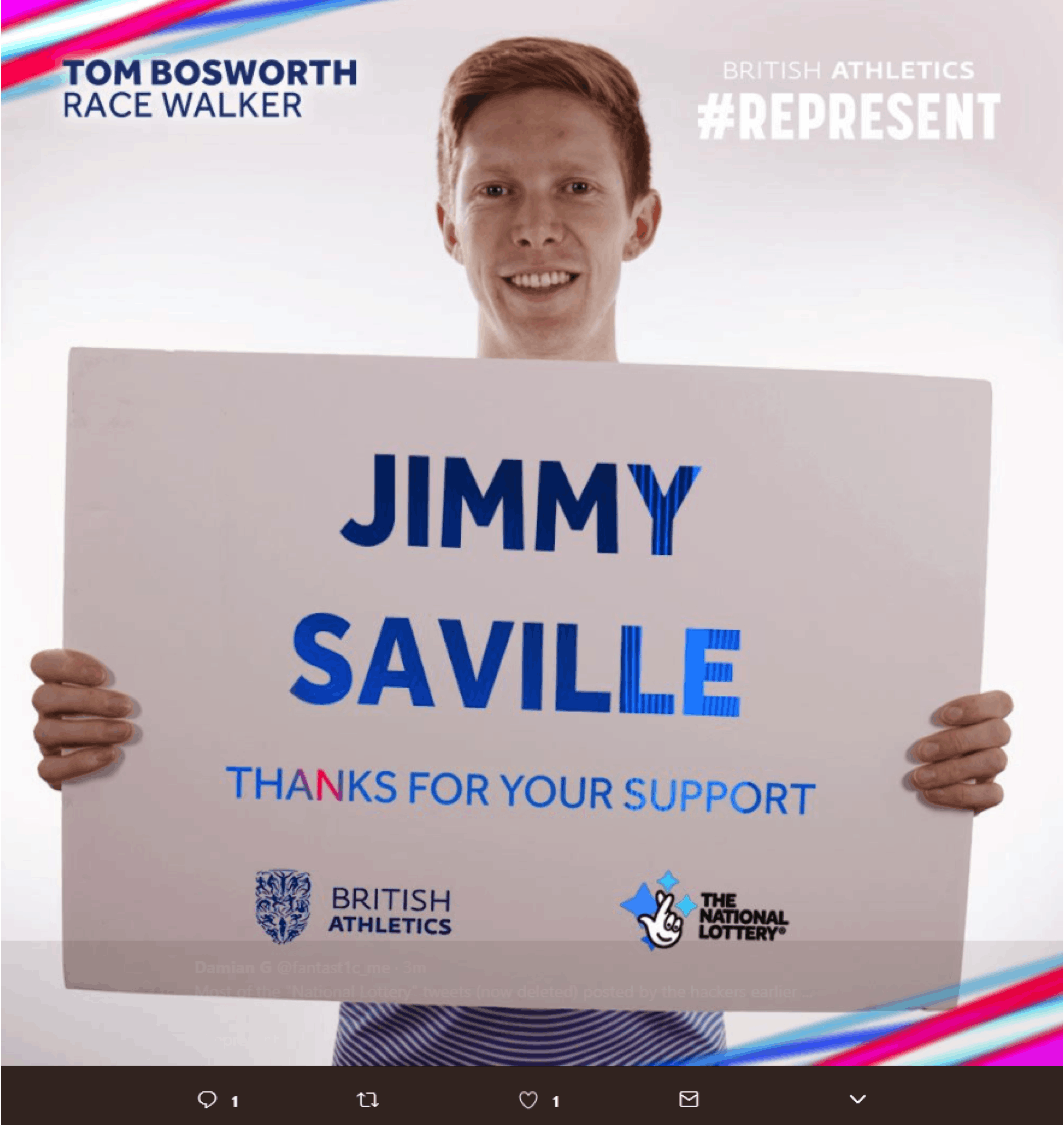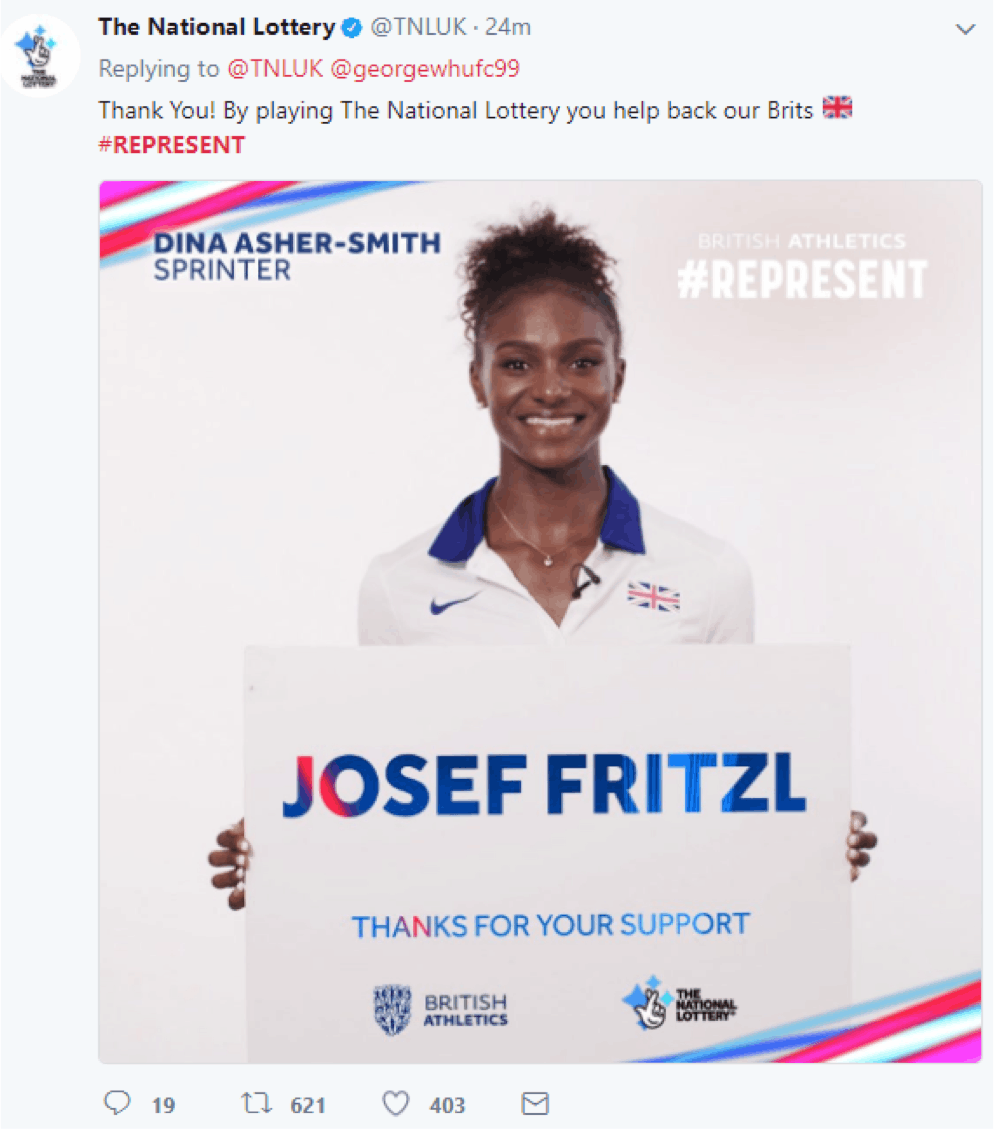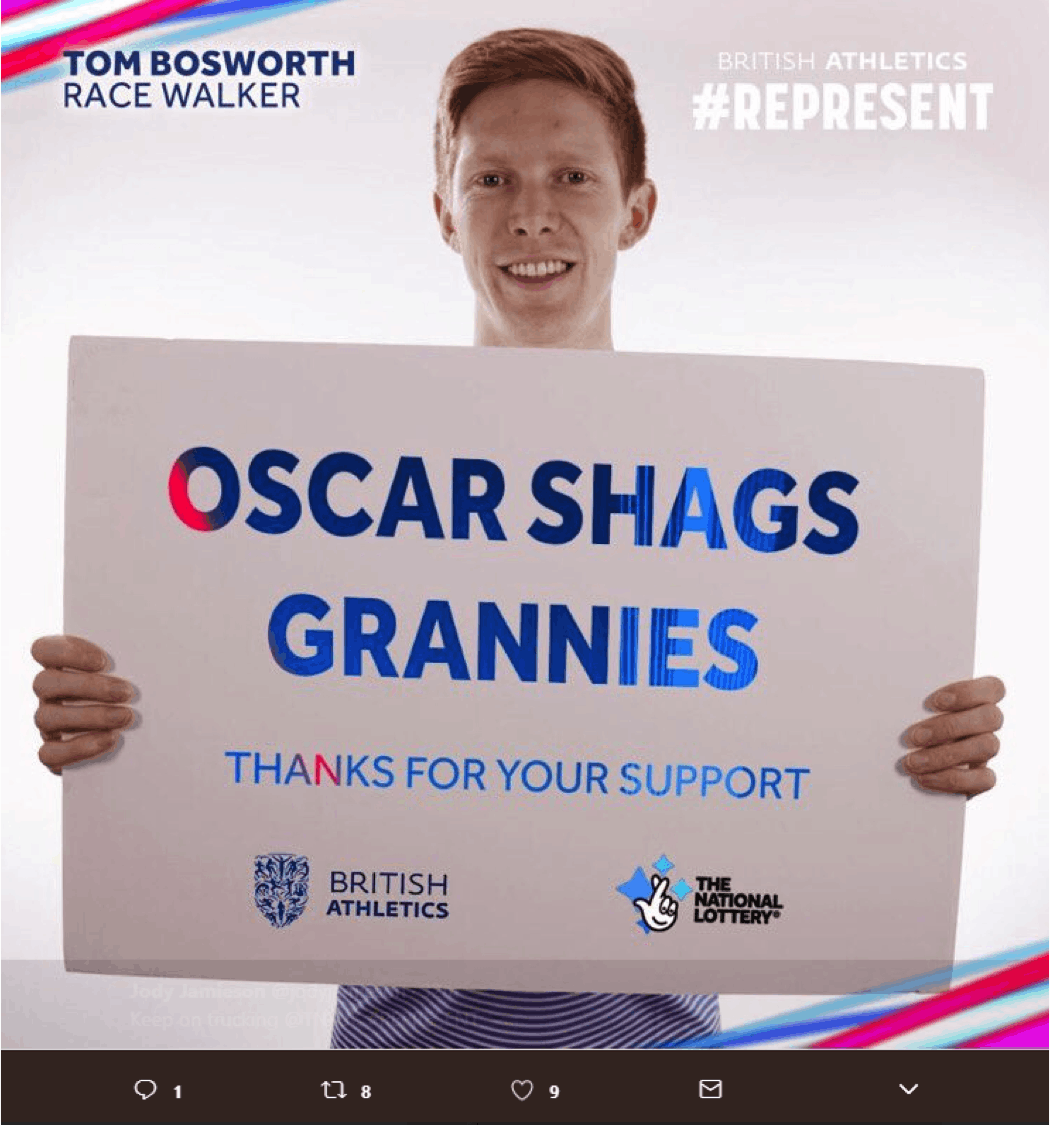Mark Ritson: The National Lottery found out the hard way how moronic consumers can be
A National Lottery Twitter campaign has been hijacked by trolls, but marketers would have seen it coming if they weren’t so absorbed in their fantasies of ‘brand love’.
You would think marketers would have worked it out by now. But many appear still to live in a perfect rose-tinted bubble in which communications are seen as a clarion call, brands are something that people want to fall in love with, and consumers are positive, upbeat citizens of the world who can’t wait to get inspired by purpose and consumption and buying stuff.
That’s how things probably look in most marketers’ Powerpoint presentations. But a dose of market orientation would change everything. You remember market orientation? It’s the core concept of marketing and can be neatly summarised with the mantra: ‘You are not the consumer’.
I prefer to take it further with clients and point out that they are, quite literally, the least qualified people on the planet to see their product or service the way that their consumers do. If you make the product you can’t see it from the customer perspective. Similarly, if you work in an agency your view of campaigns and brands and customers is total bollocks. You work from the comfortable part of the spear – the pointy end is totally different.
READ MORE: Boaty McBoatface proves the public would rather humiliate your brand than engage with it
Campaigns are not clarion calls that unite a nation and change attitudes. They are little nudges that play on existing attitudes and interests and just do enough to turn the dial in our favour. Sure, we have our case studies where a single ad changed the world: Wonderbra, Guinness, Marmite and so on. But for these epic moments of impact there are thousands of channel-changing, page-turning, screen-swiping failures.
What’s more, these ads – the ones that interrupt the morning music or absorbing late night movie or interesting news feed – are despised. People hate advertising. They tolerate it but, offered a red button, would exterminate it tomorrow.
Brands aren’t loved by anyone either, other than the marketers who manage them. Most of these marketers live a virtual reality existence of brand love and corporate purpose. These marketers have forgotten that the fact they spend their lives working on a brand does not make up for the brief seconds of time it takes up in the consumer’s life.
Most brands are totally ignored. A few have a tiny dollop of salience, which proves enough to win market share. Still fewer have genuine meaning for customers. But this vision of consumers establishing relationships and love for brands is over-wrought marketing horseshit – the wet dreams of marketers that never actually hang out in the supermarket aisle, or listen in to call centre staff, or stand in the rain while consumers trundle past their hot new visual merchandising in that shiny big window that no-one notices.
Brands aren’t loved by anyone other than the marketers who manage them.
Consumers are not consumers – only marketers think of them that way. They are people; people who view consumption, for the most part, as a mundane and necessary part of a much more interesting existence.
They don’t think that toilet paper is innovative. They don’t think their toothpaste says something about their personality. They don’t give a fuck about the brand purpose of the lightbulb they try, swearingly, to screw into the socket of their bathroom ceiling. And despite all the bright, aspirational, stock-art faces that populate marketing Powerpoint slides with the title ‘target consumer’, most of them are cynical and unpleasant. Many are total dickheads.
Now don’t take any of this to be negative. It’s realistic. And don’t assume that means campaigns and brands cannot work on consumers. Of course they can. But marketing enjoys a much harder task and less likely success rate than most would have you believe. A lot of it depends on not taking a rose-tinted view of everything, but using market orientation to understand the real situation.
Of course, that rarely happens. Instead we continue to ride our pink unicorns through the candy-coated world of marketing, building ridiculous campaigns that push for unrealistic brand goals from target consumers who do not actually exist outside of Powerpoint decks projected on a screen above a Starbucks somewhere off Charlotte Street.
https://vimeo.com/224962064
Take, for example, the wonderful new work of The National Lottery and British Athletics at the London World Championships. In an attempt to “unite athletes and fans as one” the new “digitally led” campaign created an official hashtag for the British Athletics team: #Represent.
If you live in marketing land then the whole idea provides an inspirational, beautiful vision of athletics bringing together a nation and uniting people of all interests and orientations. You probably think the ad will work. You believe it will connect people to British athletics. You can see consumers being inspired by the #Represent campaign.
That’s why you also create a social media campaign in which these suddenly excited consumers can share their inspiration with others and demonstrate just how much they have united with British Athletics, as The National Lottery did. What could be better than a digital tool that allows people to select their favourite athlete, the one they connect with most, and add a personal message of inspiration and support on a board held by the sportsperson in question? And then, best of all, they can share it with other equally engaged fans and unite with them too. All in one massive, positive, entirely unrealistic vision conjured up by marketers who don’t get it.
What you get instead is a sudden reality shot from the real, cynical and entirely moronic world of the consumer. They don’t care about athletics. Or uniting with athletes. They really only care about having a laugh and being a dickhead.
And so the #Represent campaign became, for a few brief hours, before it was swiftly yanked from the public consciousness, a window into the gap between how marketing sees the world and how it really is. Rarely does the juxtaposition present itself so clearly.
READ MORE: Walkers Crisps social media campaign backfires as trolls hijack competition
Collected at the top are some of the (less offensive) messages that the #Represent campaign generated. I will not comment on them. Feel free to feel shock, anger, humour, disgust or any other emotion. But also feel the distinct separation of marketing and reality.
The messages are not pleasant but I encourage you to navigate them and take a long, hard whiff of market reality. Use them as strategic smelling salts the next time someone puts up an image of a smiling clip-art consumer, or talks about engagement or brand love or any of the other horseshit that pervades our industry.
Everything else might be wrong about the #Represent campaign, but the word itself is perfect.
Professor Mark Ritson will be teaching the next class on the Marketing Week Mini MBA in Marketing from September 2017. To find out how it could make you a more confident, more effective and more inspired marketer, and to book your place, click here.













I’d like to add that I submitted my column this week with about a dozen examples of the #represent campaign and the editorial team opted (completely with my support) to only show the least offensive examples. Other widely circulated examples other than the five we showed above were approximately 500x more disgusting and probably not fit to reproduce.
Although a number of them can be found at MailOnline if anyone is that way inclined.
I feel your frustration but sadly don’t think much is going to change…
I think this offers a thorough bed bath of reality for anybody working in marketing or public relations for that matter.
Great read, the line involving the brand purpose of a lightbulb made me laugh.
You’d think companies would learn that campaigns that allow internet users to contribute to them usually equals disaster. Anyone remember Mountain Dews failed public poll to name their new flavour of energy drink? Agencies and companies must consider the fact that not everyone is hysterically loyal to your brand and would rather watch it crash and burn.
See I’ve always thought this do we take marketing too seriously by always trying to portray a professional and positive message in our marketing.
I believe when we do this people’s bullshit bells start ringing and just see it as sales and marketing which is why we see a backlash like here in the national lottery campaign.
I work for a variety retail store called This Is It and our name often gets rearranged to a more crude name and I would love to reverse engineer it but there’s so many constraints to doing so. For example if we were an alcohol company it would be much easier to switch it up with a funny comeback campaign because the demographic is more in line with this piss taking culture. But as we’re a variety retailer our demographic is very broad and includes families etc. Which would be easily offended.
Great marketing reality check, Ritson! My fav article of yours to date, and i enjoy them all. Love the honesty. Keep up the great work.
Thank you Mark for this post – I have shared it on LinkedIn
“..we continue to ride our pink unicorns through the candy-coated world of marketing…” such a strong image – its my favourite line!
Thanks for the article, thought provoking as ever… Two things strike me the consumer/ public also created Boaty Mc Boat Face , (be careful what you ask for )and I wonder did the # come before the actual creativity?
Cracking piece. Your best in a while; “strategic smelling salts” is quite brilliant. I LOL’d at the Josef Fritzel one. People who are target audience often make the best brand marketeers. If that’s not the case, add a final screening stage to the messaging and creative in which you actively take the piss out of your own work and spoof it. One can then take an informed judgment on whether to use the idea.
How moronic can consumers be?
A question worthy of an in depth enquiry?
For public consumption perchance and maybe?
What if consumers are sick of being patronized by those who crave their loyalty?
What if consumers are right to reclaim their power of reply and their ability?
To patronize whatever company they choose to be patrons of – secretly and openly
Without deference to branding royalty
With irreverence and with joviality
What if consumers are sick to their high teeth – tooth by tooth
Of jumped up marketers branding them idiotic and uncouth
Forsooth?
What Mark Ritson has identified is the ‘rebellion against authority’ mode of human behaviour. Sure, it’s a much needed ‘wake-up’ call for marketers but it has got little to do with brands or the moronic dickheads (to use his hyperbole) who apparently despise them.
I’d argue that people everywhere do like to build relationships with brands. We’ve been doing it for thousands of years if you count religions. OK, perhaps it’s only a select few that we’d claim to love, but surely that’s the goal as a marketer. To be on the preference list.
Going back to rebellion against authority – it’s been demonstrated many times in behavioural economics experiments that people don’t behave in a rational way. If you push the superiority/inferiority buttons they may just try to derail the whole relationship. I think that’s what is going on in the both the National Lottery and Boaty McBoatface examples. Given the opportunity, people are having mischievous fun.
Yes, many marketers may need a reality check, but let’s not underestimate the bond between brands and the people who buy them. Sometimes it is a meaningless fling, but for a great many others it’s the start of a beautiful relationship.